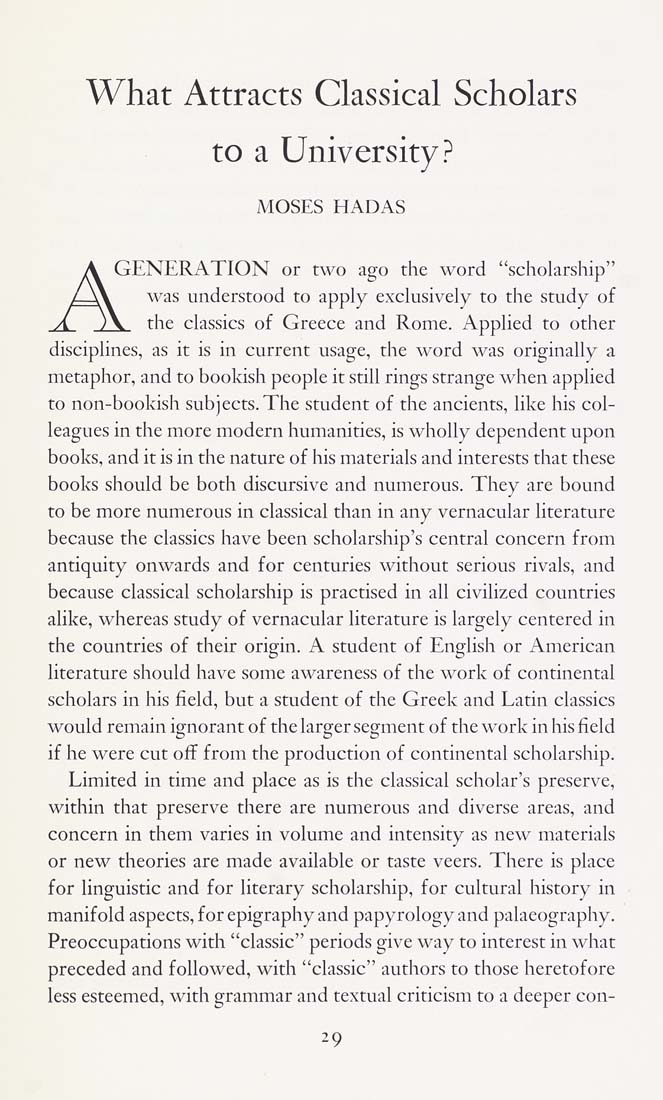Columbia Library columns (v.9(1959Nov-1960May))
(New York : Friends of the Columbia Libraries. )
|
||
|
|
|
|
| v.9,no.3(1960:May): Page 29 |

What Attracts Classical Scholars to a University? MOSES HADAS A GENERATION or two ago the word "scholarship" /-j\ was understood to apply exclusively to the study of A )\ the classics of Greece and Rome. Applied to other disciplines, as it is in current usage, the word was originally a metaphor, and to bookish people it still rings strange when applied to non-bookish subjects. The student of the ancients, like his col¬ leagues in the more modern humanities, is wholly dependent upon books, and it is in the nature of his materials and interests that these books should be both discursive and numerous. They are bound to be more numerous in classical than in any vernacular literature because the classics have been scholarship's central concern from antiquity onwards and for centuries without serious rivals, and because classical scholarship is practised in all civilized countries alike, whereas study of vernacular literature is largely centered in the countries of their origin. A student of English or American literature should have some awareness of the work of continental scholars in his field, but a student of the Greek and Latin classics would remain ignorant of the larger segment of the work in his field if he were cut off from the production of continental scholarship. Limited in time and place as is the classical scholar's preserve, within that preserve there are numerous and diverse areas, and concern in them varies in volume and intensity as new materials or new theories are made available or taste veers. There is place for linguistic and for literary scholarship, for cultural history in manifold aspects, for epigraphy and papyrology and palaeography. Preoccupations with "classic" periods give way to interest in what preceded and followed, with "classic" authors to those heretofore less esteemed, with grammar and textual criticism to a deeper con- ^9 |
| v.9,no.3(1960:May): Page 29 |







